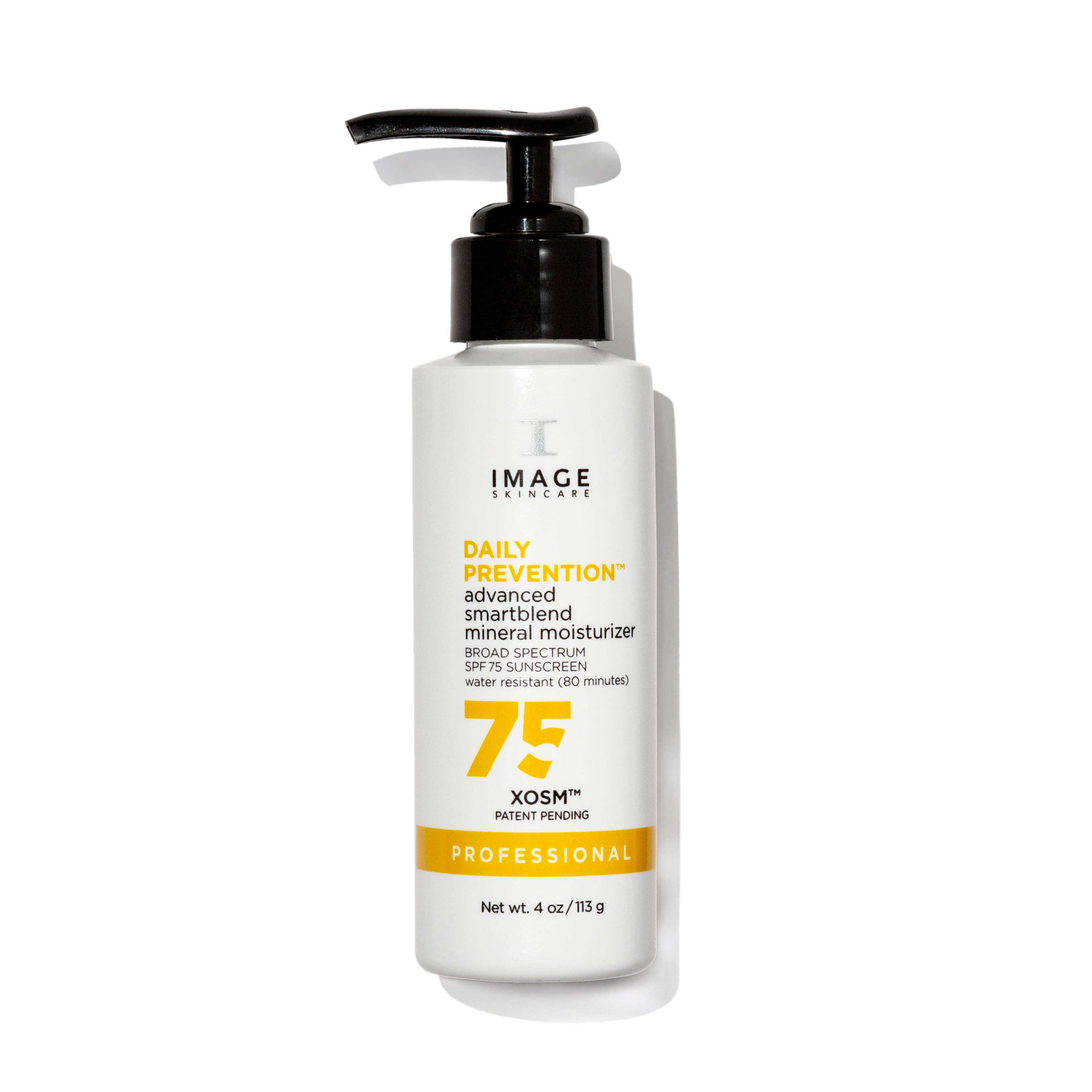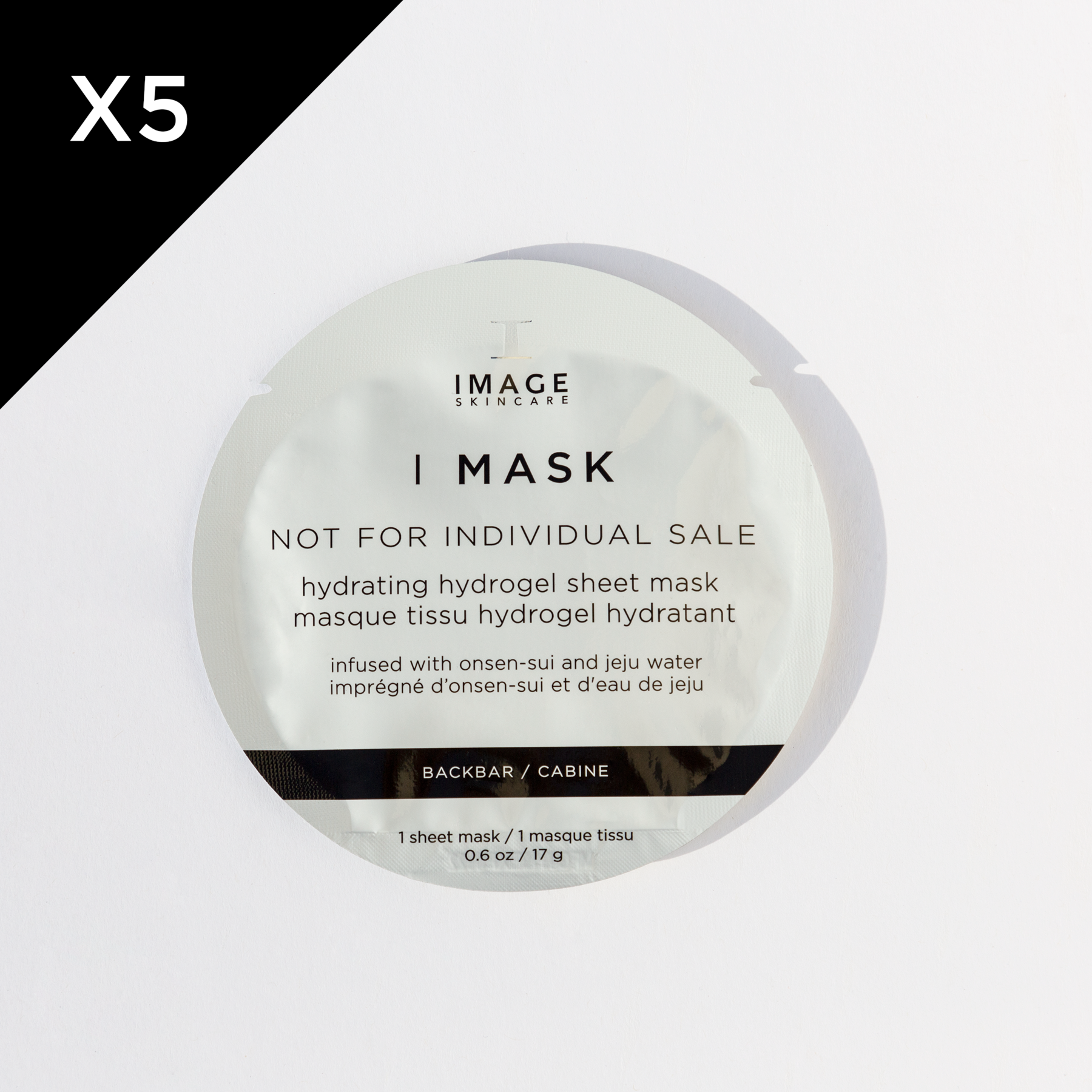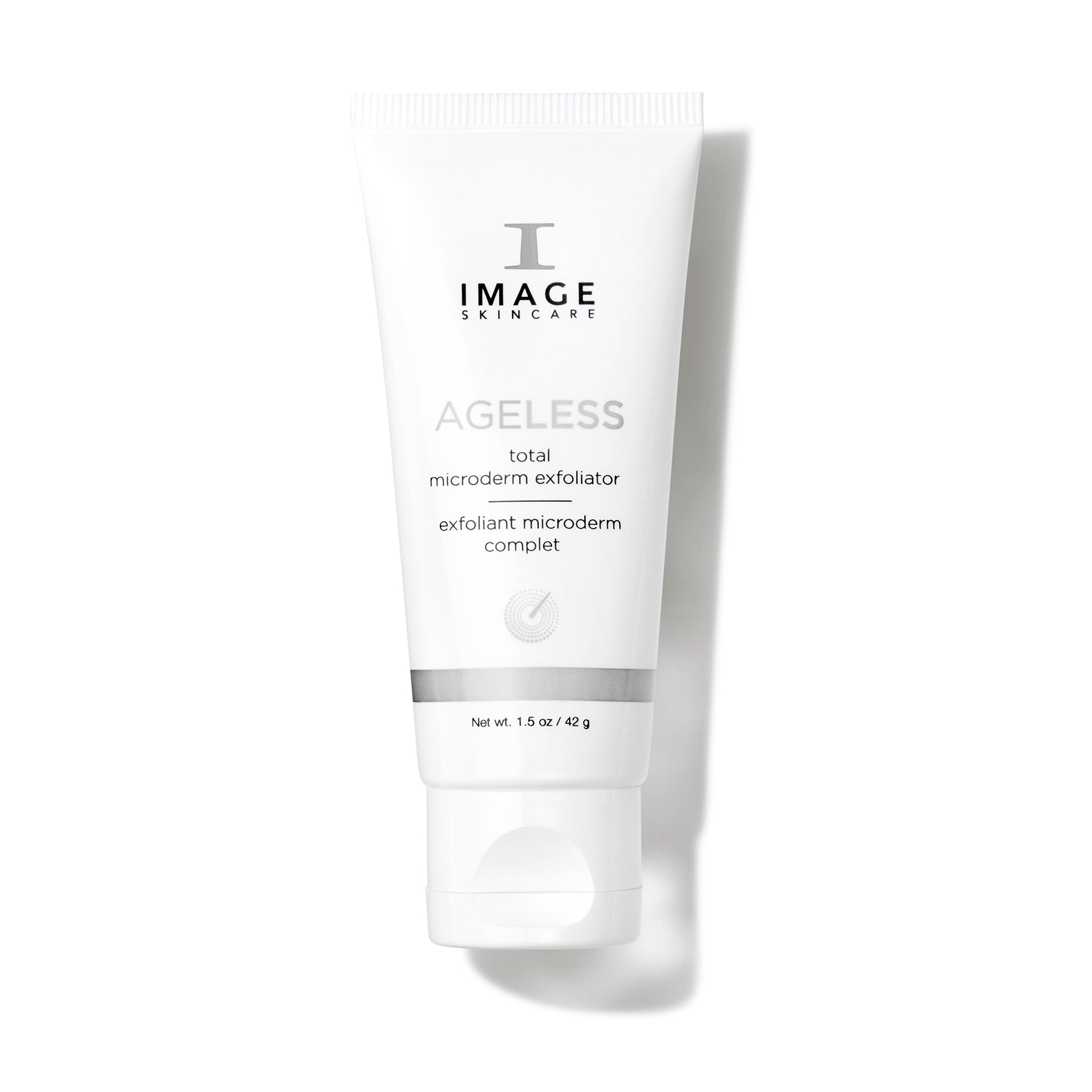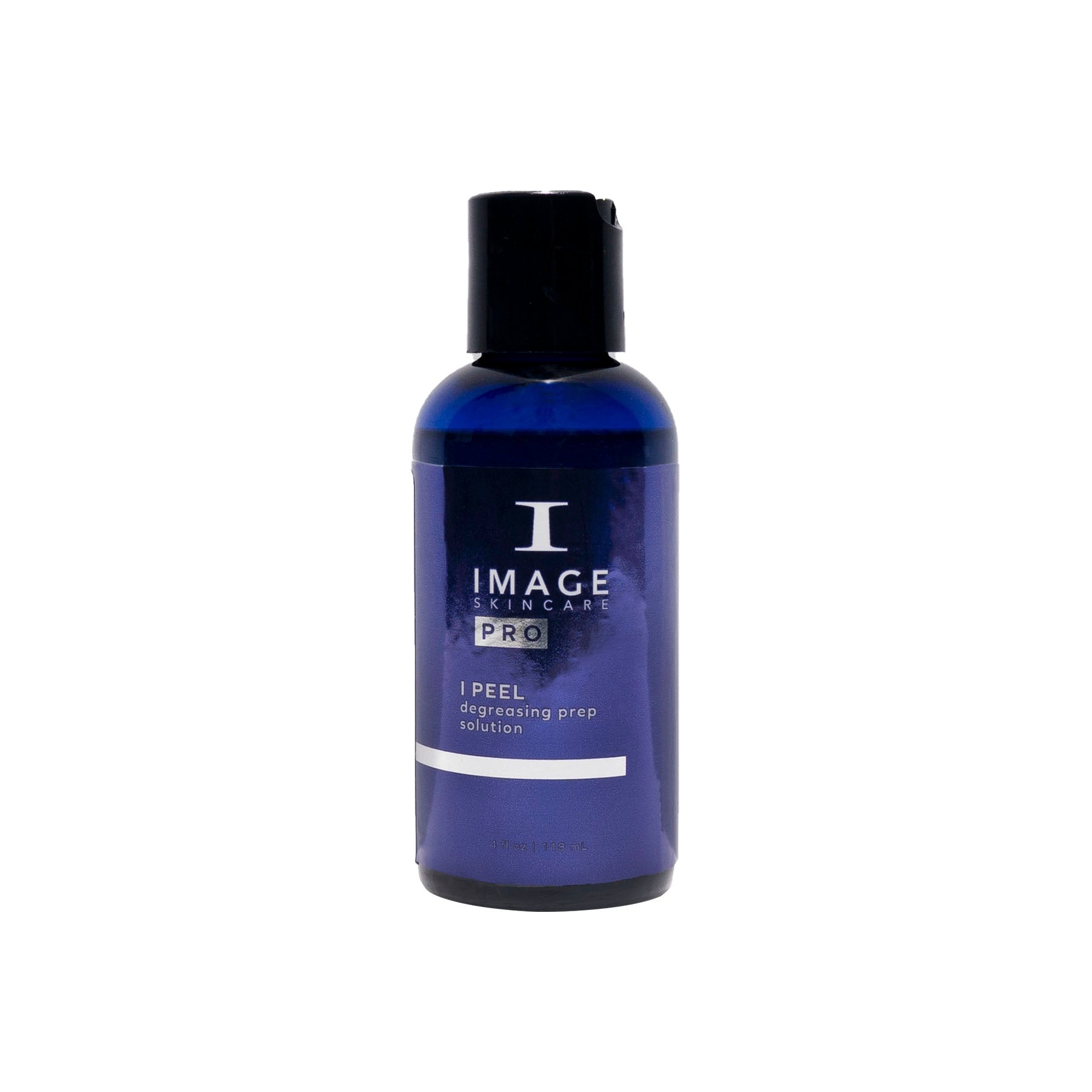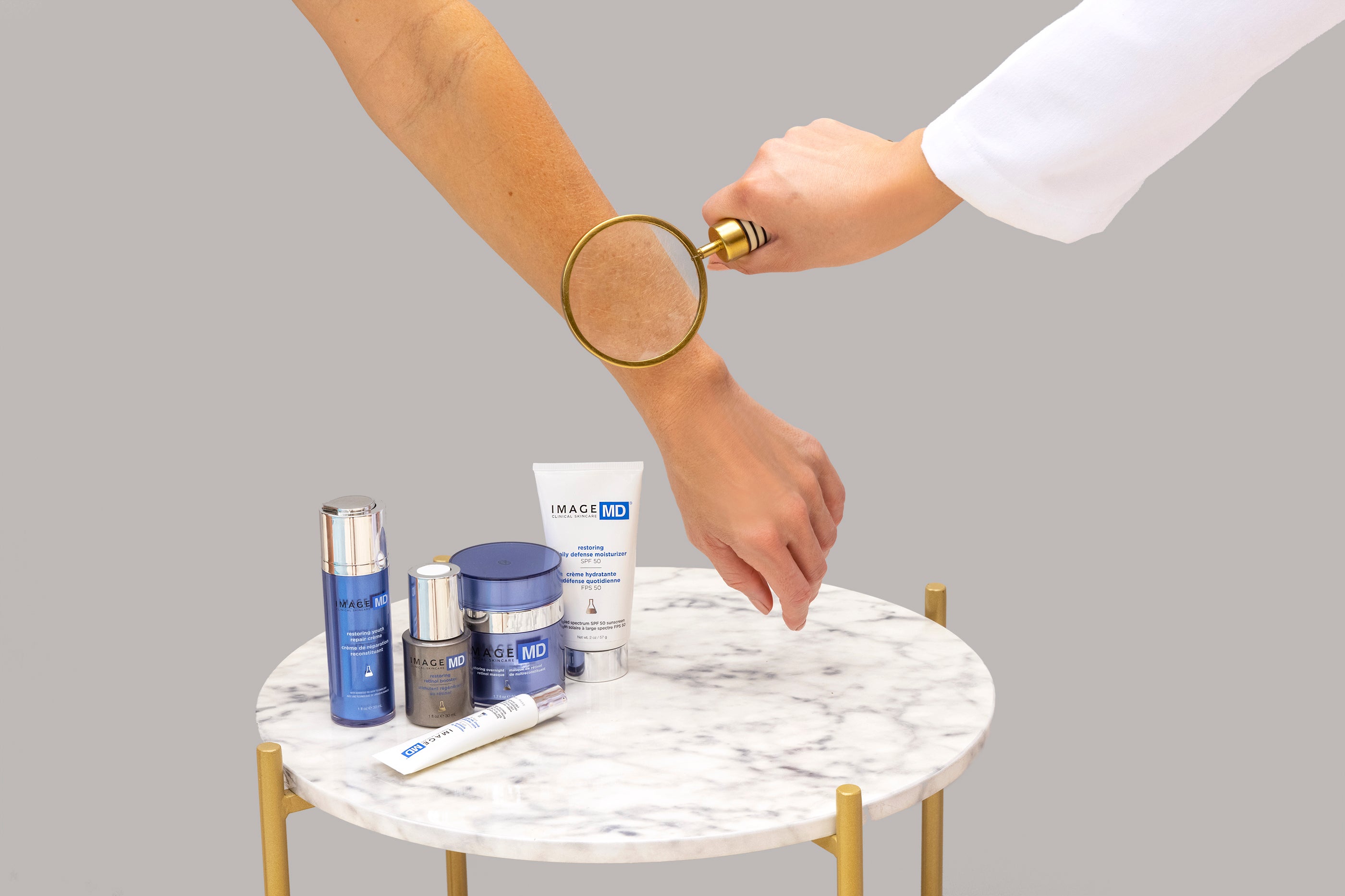
What's the Difference Between a Dermatologist vs. an Esthetician?
Both dermatologists and estheticians are able to offer a wide range of care for different skin types. Their training and services vary drastically in some areas, but may overlap in others.
As a result, it’s not uncommon for some people to be confused about who they should visit for certain skin-related concerns and this is when the dermatologist vs esthetician debate comes in.
In general, an esthetician can offer a relaxing skin treatment and work with you on minor treatments including microdermabrasion or hair removal. They can also provide a relaxing facial making use of various products including our IMAGE MD restoring retinol booster to help with wrinkle reduction and hydration.
Dermatologists, on the other hand, are normally better suited to diagnosing and addressing more serious skin issues such as cystic acne, inflamed rashes, or skin cancers. They can provide surgical or injection-based services such as Botox and other facial fillers. Since these are considered medical procedures, an esthetician cannot legally offer them.
What Is a Dermatologist?
A dermatologist is a professional that will need to go through several years of medical training. It’s not uncommon for a dermatologist to receive different types of schooling for 11 or 12 years. This gives them a very unique and in-depth understanding of multiple issues and ailments involving your skin, hair, or fingernails.
This schooling can include four years of college, before attending medical school for four years as well. From here, they will normally move into a one year medical internship, followed up by an additional three years in a dermatological residency.
At this point, a dermatologist will apply for board certification with the American Board of Dermatology. After receiving their board certification, they can then decide to take additional schooling in various areas such as cosmetology, dermatology, dermatopathology, or cancer surgeries which can add another 24 months of schooling.
As a trained medical doctor, a dermatologist can diagnose and treat around 3,000 different skin ailments. These can range from eczema and psoriasis, all the way to skin cancer. While most dermatologists will have a vast knowledge and understanding of most issues, some will choose to specialize in specific areas such as cancers, rashes, or acne.
What Is an Esthetician?
An esthetician is a professional that does not need to undergo years of medical training, but still requires certain schooling and licensing. Their main focus is on non-medical skin related concerns such as hair removal, proper makeup application, and applying different facials.
In order to become an esthetician, the interested skin care professional would need to have anywhere from 400 to 600 hours of training from an accredited school with specialized classes for estheticians. After graduating, they will take an exam provided by the State Board of Cosmetology in their home state.
While they won’t be in school for 12 years like a dermatologist could be, a licensed esthetician is a well-trained professional that is worthy of your trust. Their passion focuses on less medically-focused and more beauty-focused skin care procedures such as facials, microdermabrasion, makeup application and removal, and more.
If you’re looking for a trained professional that can assist you with the right skin care routine or layering process, an esthetician is the person to visit. In fact, it’s not uncommon for individuals to be confused about the best way to use our IMAGE MD restoring power-C serum and what products it can be combined with for the best results.
An esthetician is a great teacher when it comes to various skin care products. They can share a range of tips and tricks with you regarding foundations, sunscreen, proper skin hydration, and so much more.
When Should You See a Dermatologist vs. an Esthetician?
If you notice some skincare issues or are looking for a professional that can provide facials or other cosmetological services, you may wonder about the difference between dermatologist and esthetician training.
A dermatologist is a medical doctor, so they can diagnose and treat more severe skin issues such as inflamed rashes, allergic sensitivities, unknown lesions, and more. You can also visit a dermatologist for annual check ups, or if you notice changes in the size and color of moles on your skin.
Dermatologists and other medically trained skincare professionals can also assist you with procedures related to aging. For example, our Age Later Book by Dr. Marc A. Ronert includes a number of ways you can maintain a healthy lifestyle while reducing the appearance of aging by up to 7 years.
Since an esthetician cannot diagnose medical issues, nor can they write a prescription for medications such as those for severe acne, you will need to visit a dermatologist. In addition, if you are searching for a prescription strength chemical facial peel, an esthetician does not have the licensing to offer this service and a dermatologist will be required.
An esthetician can help with more gentle chemical facial peels, as well as microdermabrasion services. In addition, they can help with proper makeup application and training, and can openly recommend non-prescription skin care and beauty related products they trust and have used themselves.
If you’re new to skincare regimens or simply want to change up your current routine, an esthetician can help with that. They are well versed in various skin types and how different skin care ingredients can be a benefit or not. An esthetician can also help address early acne issues, perform blackhead and whitehead extraction, as well as provide hair removal procedures.
When it comes right down to it, you can view an esthetician as a trainer. They can perform some skin care maintenance routines while also teaching you how to do them yourself at home. A dermatologist on the other hand is a doctor so should be viewed as an authority on more advanced needs. In addition to diagnosing different issues, they can provide more medically oriented beauty services such as botox and other fillers.
Sources:
https://www.aad.org/public/fad/what-is-a-derm
